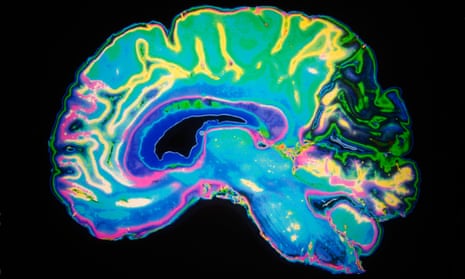A study led by Daphna Joel at Tel Aviv university has shown that there’s really not much in the way of difference between male brains and female brains. There are features that are more prevalent in the brains of women and features that are more prevalent in the brains of men. But human brains tend to have a highly individual mix of such characteristics.
Interestingly, while hardly anyone has anything like the full set of mostly male features or the full set of mostly female features, by no means everyone with a significant collection of “female end” features is female, and vice versa. What’s more, many of these characteristics aren’t fixed. Environment and experience also play their part in shaping the brain, increasing its individuality.
For me, the most astonishing thing about all this is the way that humans nevertheless generally resist the idea of such total individuality. People – girls and boys, women and men – are attracted to the idea that they are part of a group of like-minded others, and different to a group that are not like-minded.
Whether it’s class, family, tribe, nation, religion, the football team you support, the political views you hold, the music you prefer dancing to, or the sort of clothes you wear, it’s all about sharing your values with some, and feeling, at best, a bit sorry for those less discerning than you, at worst utterly murderous towards them.
Making a big deal out of biological gender is maybe just the most basic way we have of saying: “You’re like me. And you’re not.” Maybe it’s a bit scary for human beings, the idea (which is fast beginning to look like scientific fact) that there really is hardly another soul on Earth who is quite like them. It’s one of these things that everyone knows, but largely resists thinking about. We may like the idea of individuality, but we are afraid of loneliness.
When two men met their doppelganger on an aeroplane recently, amazement was expressed. Parents often declare their astonishment that the various children they had together could be so different. We understand that humans are highly individual, but we generalise about people, and what they need and want, all the time.
The findings of this research will not surprise feminists, who have long argued that gender is a complex socially conditioned performance that seeks to create inherent-seeming differences in the characters of men and women, where none exist. Yet feminism itself, of course, seeks to assemble a group of like minds, sometimes even preferring to gather those like minds in safe spaces, free from the outbursts of wrong-minded heretics. It’s all very difficult.
Nevertheless, this research confirms something else that feminists often argue, which is that gender discrimination suits men no more than it suits women. It’s dreadful to think of all the girls and women who continue to be denied an education because of their gender, or because they believe it’s not what girls should want. (It is rather heartening, though, that many hundreds of years of such discrimination do not seem to have diminished our brainpower one jot.) But it’s dreadful, too, to think of all the boys and men who continue to be conscripted into war because of their gender, whether by a state or because they themselves believe that that’s what men should do.
It’s notable, of course, that the fundamentalist group that worries the world most at the moment, Islamic State, seeks both to deny education to women and glorify war for men. It seeks also to eradicate individuality, by lionising those who are prepared to eradicate themselves as long as they can kill others in the process. I suppose Isis’s obsession with “othering” can be seen as a consequence of its members feeling that, as Muslims, they are “othered” themselves. It’s how they justify their cruelty to themselves anyway, and how they recruit.
It’s easy to feel despondent about the state of the world. But there are times when I feel very hopeful, and choose to see human anger and violence as a rearguard action against a growing understanding that our strength lies in our diversity, and that our diversity can only be accommodated if everyone gets to have their say and be heard, and everybody gets to use their own unique brain as well as they can use it.
That’s why, in feminism, the idea of intersectionality is so important. It helps people to focus on difference rather than similarity, to understand that a marginal issue for one person is an important issue for another, to understand that something one person takes for granted is something another person can’t allow themselves even to dream of. A feminism that claims to speak for all women speaks only for the voices who dominate. Women, their brains, their environments, their experiences, are as broad as humanity. A powerful woman can damage a vulnerable woman as casually as a chauvinistic man can.
It’s true that intersectional feminism can be as self-righteous as any other intellectual framework, and as gleeful about hunting out and berating “the other”. But that’s just how people are. Perhaps fully acknowledging and understanding how people are is the first giant step towards changing it. What all humans have in common is that we know only what it’s like to be ourselves.

